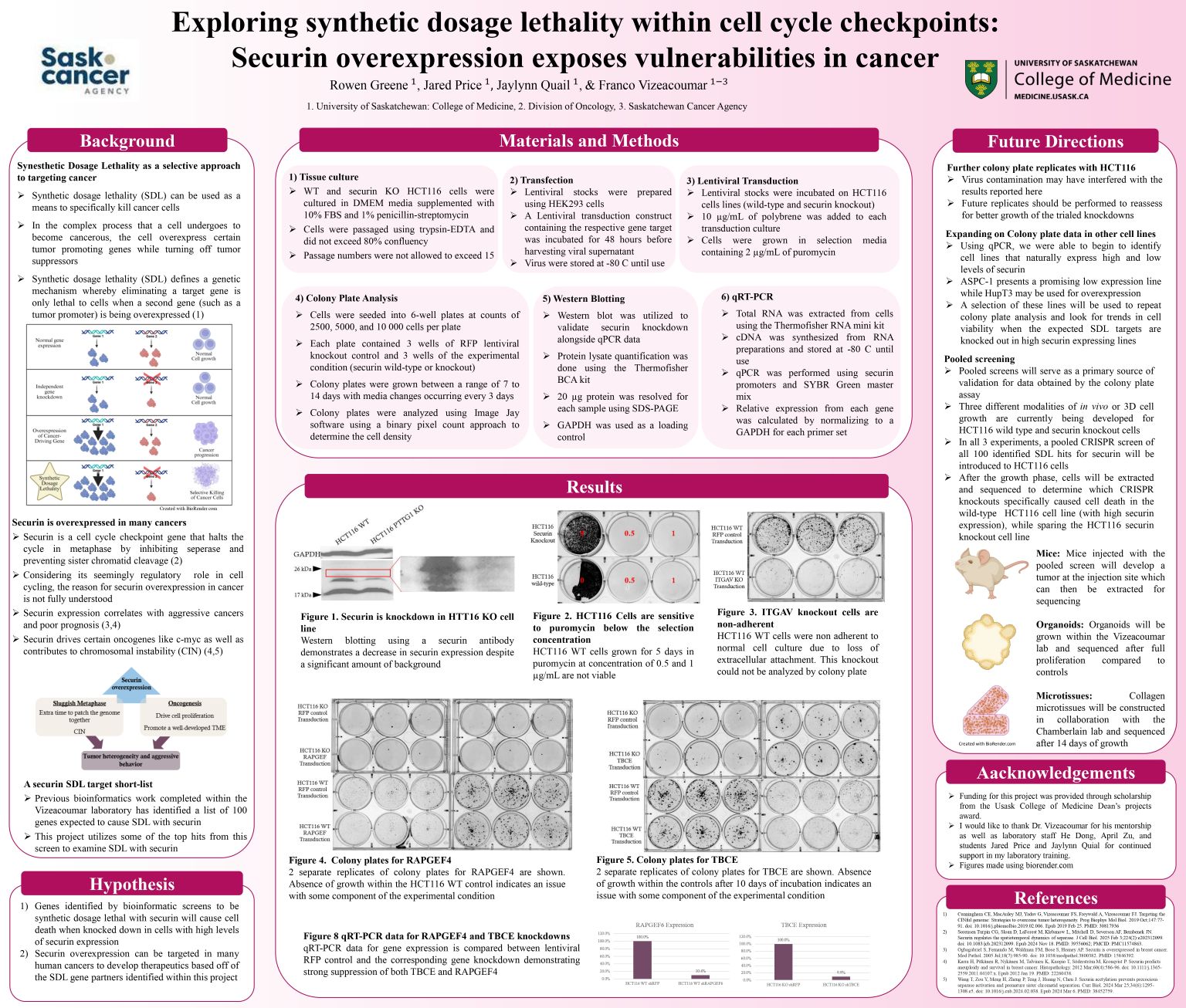
Exploring synthetic dosage lethality within cell cycle checkpoints: Securin overexpression exposes vulnerabilities in cancer
Rowen Greene
Synthetic dosage lethality (SDL) presents a targeted means by which cells overexpressing a specific gene can be specifically targeted in cancer treatment. Securin is an important regulator of the metaphase-anaphase checkpoint within regular cell cycling that is commonly upregulated across many cancers, making it a strong target for SDL screening. This project was directed by previous bioinformatic screening done within the Vizeacoumar laboratory that identified a list of 100 securin SDL hits. Over the course of this project, a series of confirmatory colony formation assays were performed to validate these computationally predicted gene hits. The sequence of the project involved producing lentiviral vectors carrying shRNA for a gene of interest, transduction of HCT116 cells wild type and knockout securin, and analysis of the growth of each cell condition. Although poor transduction results limited the amount of data produced, future sequencing of pooled screening data will help to validate the predicted SDL interactions examined within this project.
